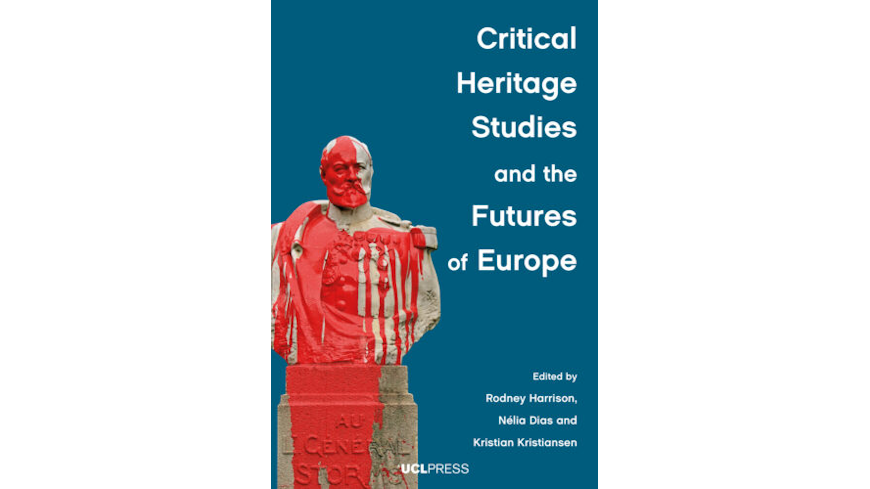A new publication ‘Critical Heritage Studies and the Futures of Europe’ with the chapter co-authored by Prof. Julianne Nyhan
with the chapter co-authored by Prof. Julianne Nyhan
2023/10/27
We are happy to share the release of the open access publication, “Critical Heritage Studies and the Futures of Europe.” This book delves into the intricate landscape of heritage studies, exploring its critical aspects and their implications for the future of Europe. It includes a chapter co-authored by our HDSM Professor Julianne Nyhan:

Gertjan Plets, Julianne Nyhan, Andrew Flinn, Alexandra Ortolja-Baird and Jaap Verheul 2023. “De-neutralising digital heritage infrastructures? Critical considerations on digital engagements with the past in the context of Europe” in Harrison, Dias and Kristiansen (Eds) Critical Heritage Studies and the Futures of Europe.
The book is freely available on the official website of UCL Press. The abstract of the book itself is as follows:
Cultural and natural heritage are central to ‘Europe’ and ‘the European project’. They were bound up in the emergence of nation-states in the eighteenth and nineteenth centuries, where they were used to justify differences over which border conflicts were fought. Later, the idea of a ‘common European heritage’ provided a rationale for the development of the European Union. Now, the emergence of ‘new’ populist nationalisms shows how the imagined past continues to play a role in cultural and social governance, while a series of interlinked social and ecological crises are changing the ways that heritage operates. New discourses and ontologies are emerging to reconfigure heritage for the circumstances of the present and the uncertainties of the future.
Taking the current role of heritage in Europe as its starting point, Critical Heritage Studies and the Futures of Europe presents a number of case studies that explore key themes in this transformation. Contributors draw on a range of disciplinary perspectives to consider, variously, the role of heritage and museums in the migration and climate ‘emergencies’; approaches to urban heritage conservation and practices of curating cities; digital and digitised heritage; the use of heritage as a therapeutic resource; and critical approaches to heritage and its management. Taken together, the chapters explore the multiple ontologies through which cultural and natural heritage have actively intervened in redrawing the futures of Europe and the world.
If you are interested in more information about HDSM activities, please join us on the blog.
